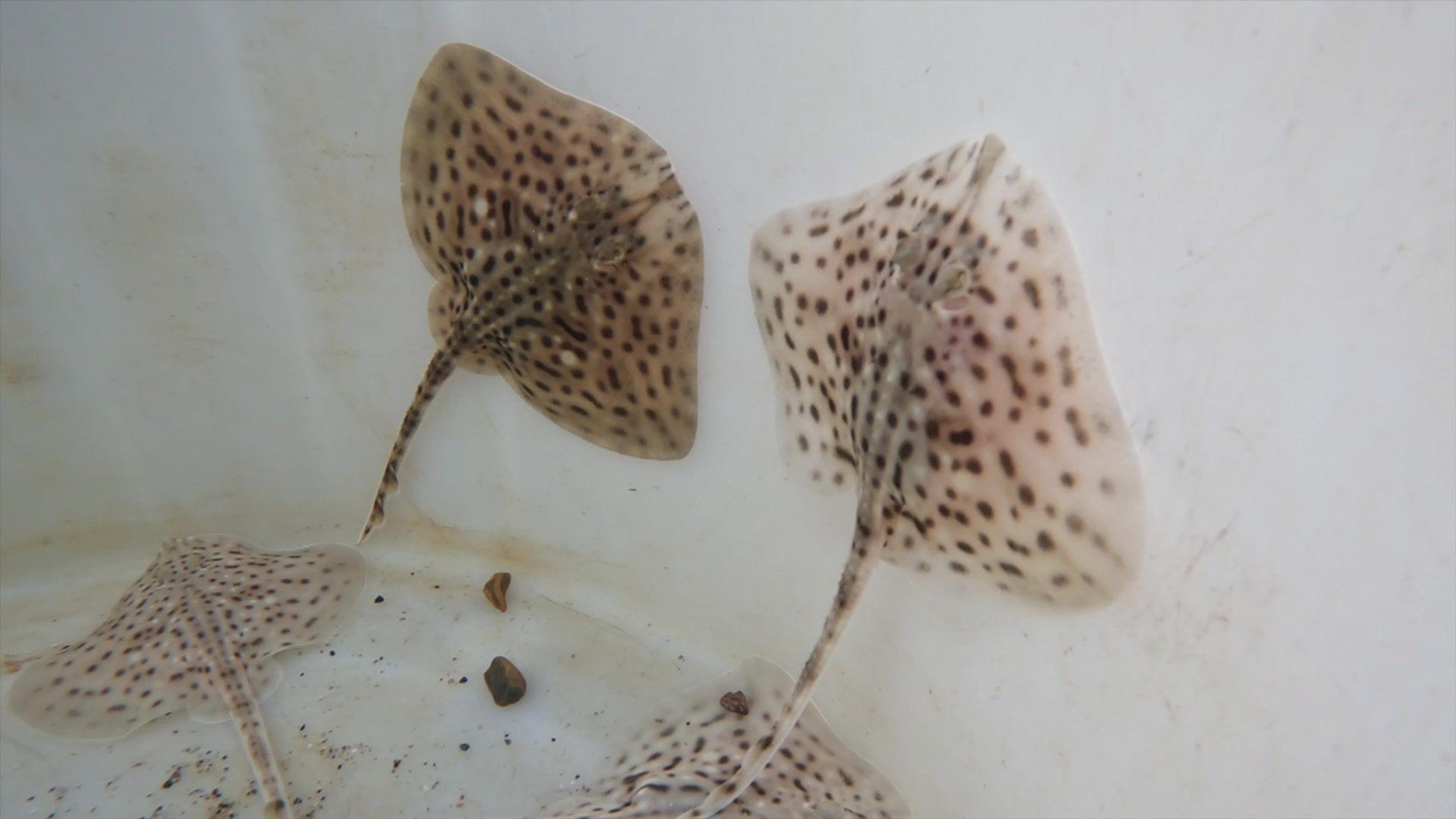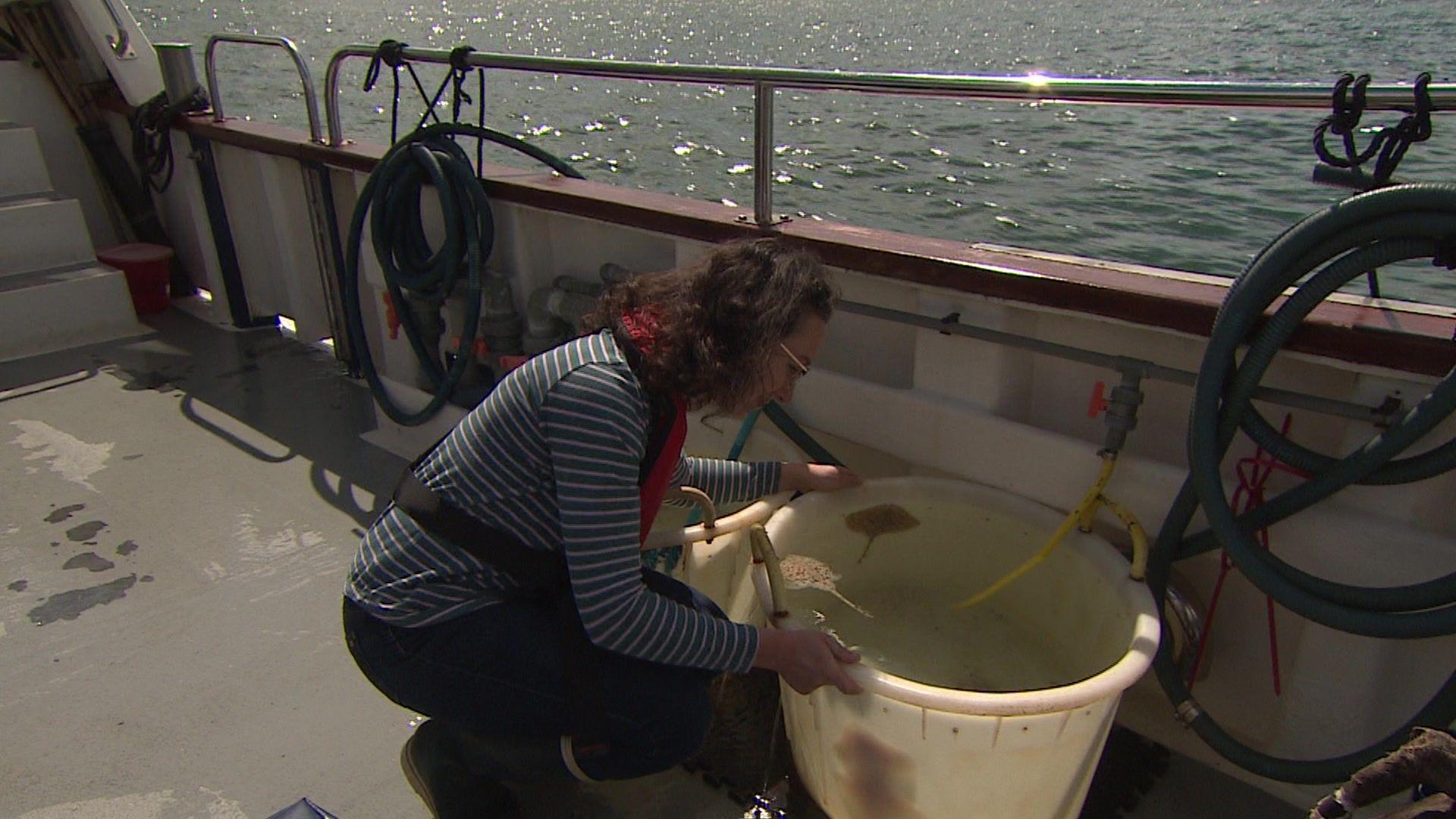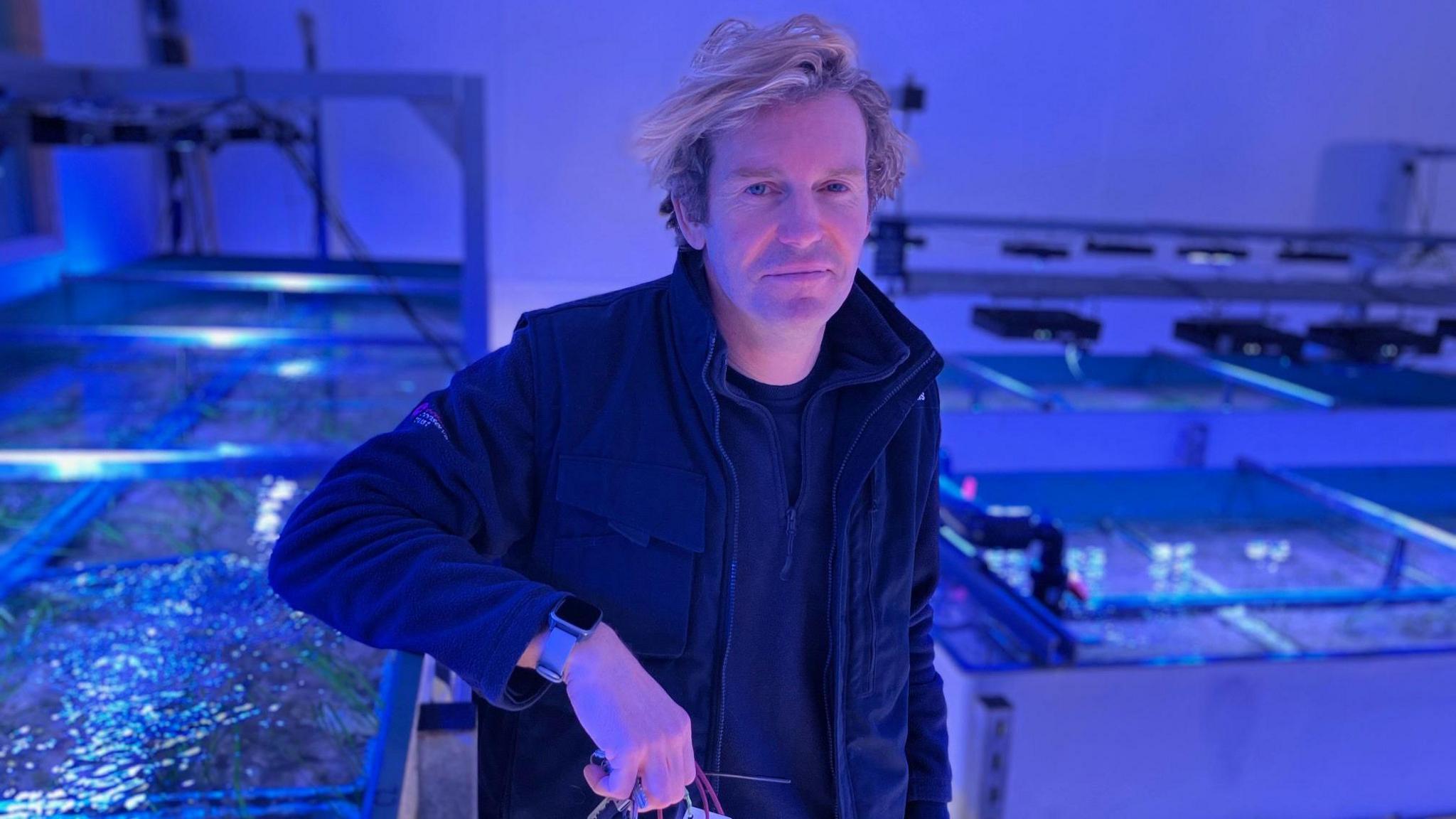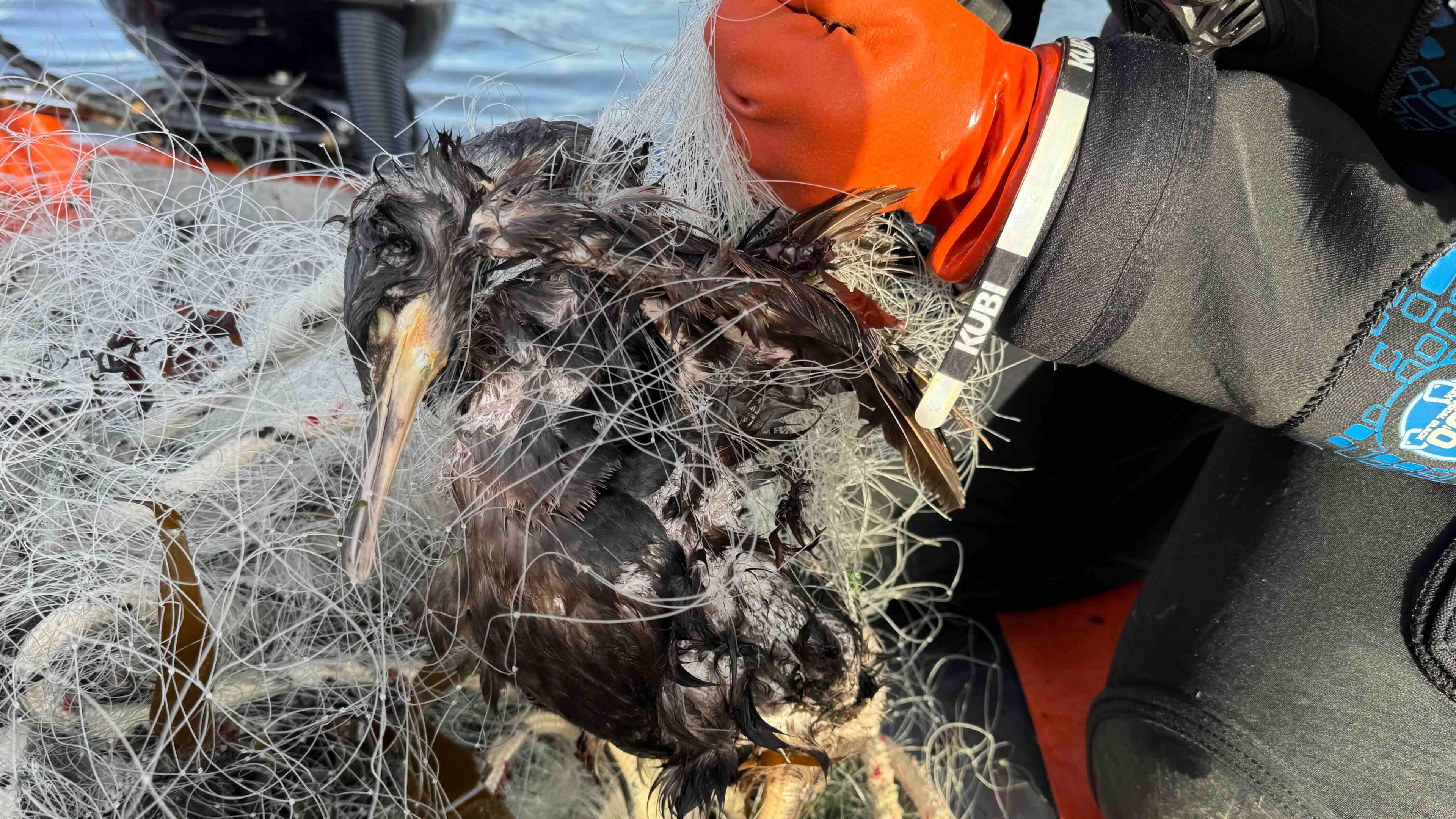Baby rays bred in captivity released into the sea

The spotted rays have been raised in captivity for the last six months
- Published
Fifteen young spotted rays have been released into Plymouth Sound as part of a project to raise awareness of the marine life around the South West.
The fish were bred in captivity as part of the Little Rays of Hope project, a partnership between Plymouth Sound National Marine Park and the Marine Biological Association (MBA).
Alix Harvey, aquarium manager at the MBA, said it was impossible to conserve species and protect the coastline without projects which encouraged others to learn more about specific sea creatures.
Ms Harvey said spotted rays had unique markings "like a fingerprint" and the released fish had been photographed so the MBA team could track them.

Alix Harvey has been hand-feeding and looking after the rays since they hatched
Elaine Hayes, chief executive of Plymouth Sound National Marine Park, said the aim of the project was to "boost nature, reconnect people to their environment, and get them to advocate for nature and look after it better".
She said one of the ways of doing this was to continue to monitor the progress of the rays, whose progress had been reported from eggs to six-month-old pups.
Ms Harvey said she hoped divers would be able to capture the fish on underwater cameras.
She said "I really do hope we get some footage of them, it would be absolutely fantastic."
Follow BBC Cornwall on X, external, Facebook, external and Instagram, external. Follow BBC Devon on X, external, Facebook, external and Instagram, external. Send your story ideas to spotlight@bbc.co.uk, external.
- Published3 December 2024

- Published23 April
